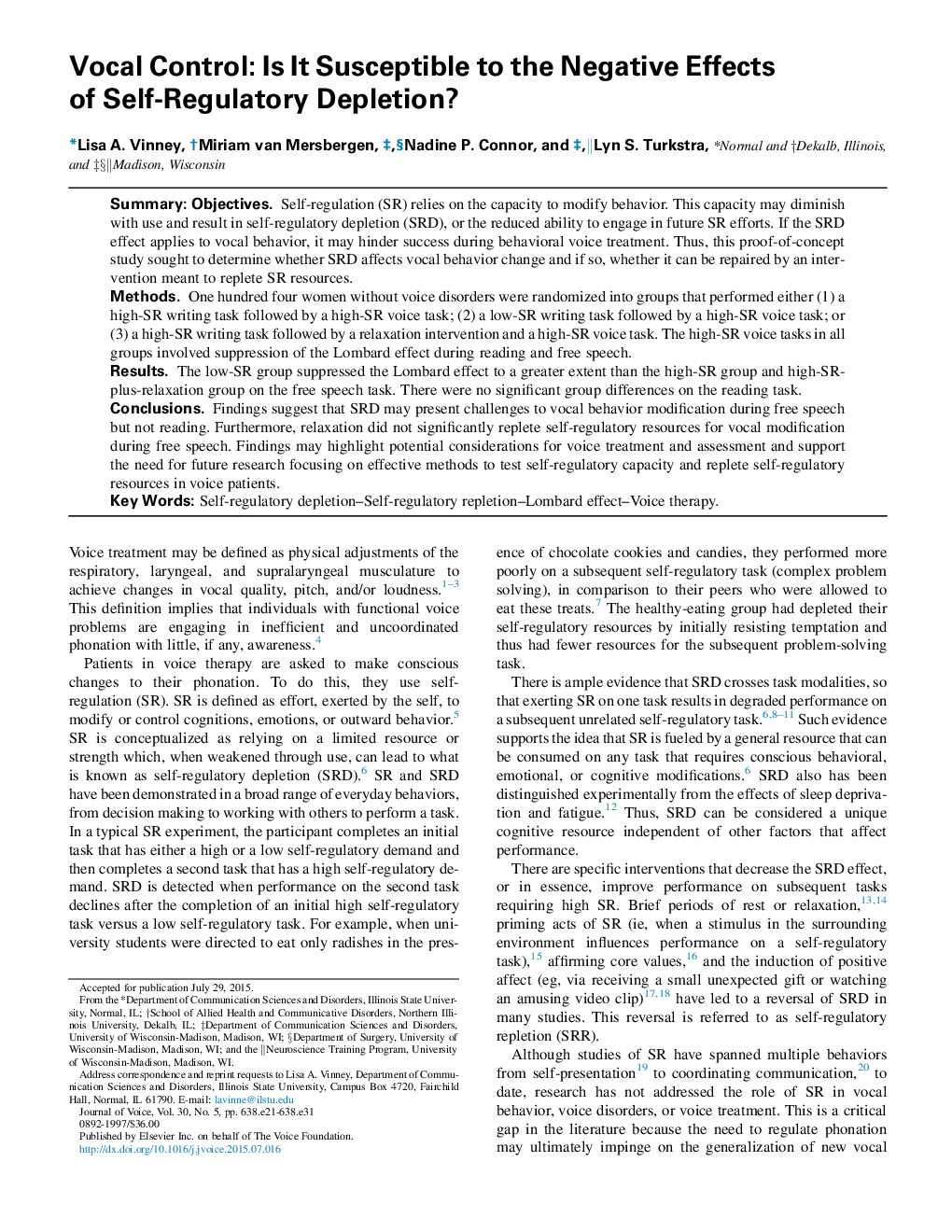| Article ID | Journal | Published Year | Pages | File Type |
|---|---|---|---|---|
| 5124494 | Journal of Voice | 2016 | 11 Pages |
SummaryObjectivesSelf-regulation (SR) relies on the capacity to modify behavior. This capacity may diminish with use and result in self-regulatory depletion (SRD), or the reduced ability to engage in future SR efforts. If the SRD effect applies to vocal behavior, it may hinder success during behavioral voice treatment. Thus, this proof-of-concept study sought to determine whether SRD affects vocal behavior change and if so, whether it can be repaired by an intervention meant to replete SR resources.MethodsOne hundred four women without voice disorders were randomized into groups that performed either (1) a high-SR writing task followed by a high-SR voice task; (2) a low-SR writing task followed by a high-SR voice task; or (3) a high-SR writing task followed by a relaxation intervention and a high-SR voice task. The high-SR voice tasks in all groups involved suppression of the Lombard effect during reading and free speech.ResultsThe low-SR group suppressed the Lombard effect to a greater extent than the high-SR group and high-SR-plus-relaxation group on the free speech task. There were no significant group differences on the reading task.ConclusionsFindings suggest that SRD may present challenges to vocal behavior modification during free speech but not reading. Furthermore, relaxation did not significantly replete self-regulatory resources for vocal modification during free speech. Findings may highlight potential considerations for voice treatment and assessment and support the need for future research focusing on effective methods to test self-regulatory capacity and replete self-regulatory resources in voice patients.
